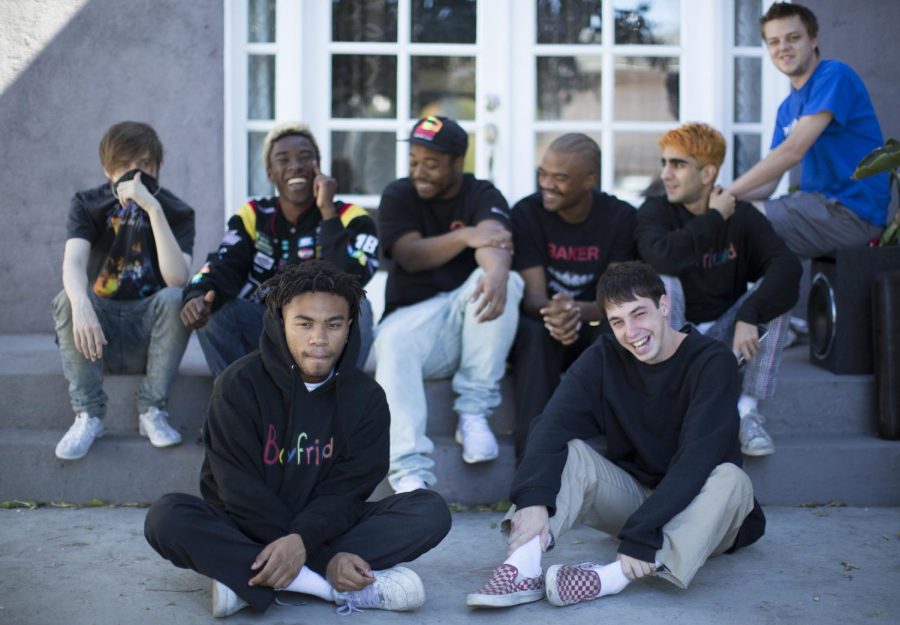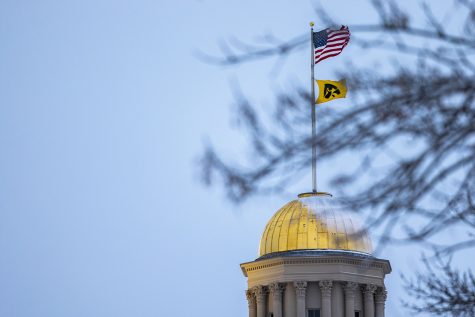Neal: Are casting calls an act of generosity, or exploitive labor?
Casting calls have the potential of exploiting talent for free work and taking advantage of it, but is that always the case?
From front left, Kevin Abstract and Matt Champion; from rear left, bearface, Merlyn Wood, Dom McLennon, Ameer Vann, Romil Hemnani, JOBA. (Myung J. Chun/Los Angeles Times/TNS)
April 18, 2019
Kevin Abstract, member of the boy band known as BROCKHAMPTON, recently tweeted a casting call requesting people in the Los Angeles/Hollywood area over the age of 18 to submit their headshots if they possibly wanted to be featured as an extra in the now released music video “Baby Boy.” Abstract was in search of talent to help him fulfill his vision for a music video that turned out to be esoteric and wholesome, as well as deeply personal, going as far as tweeting a link to the music video with the forerunning caption, “MY FAV VIDEO WE HAVE DONE YET.”
A few of my friends were selected to be extras in the music video and expressed to me extensively how much they enjoyed being included in the project. They met new people and had the chance to work with artists they admired, but their compensation was only food and meeting a few members of BROCKHAMPTON, including Joba, Ramil Hemnani, and Abstract himself. To put it simply, this could easily be viewed as a case of exploiting talent for free labor. However, despite the fact this event lacked financial compensation, the casting call came off more like a genuine effort for the artists to provide a way for their fans to interact with them and their art — something that the boy band is known for doing.
After the music video of “Baby Boy” was released, I interviewed my friend Nick Meyer, an extra in the music video, to apprehend his perspective on situations where there is little to no financial incentive besides a meet-and-greet.
“They do it so they can give people the opportunity to meet them, create with them, and work for free. Those calls are never made with ill intention, but they are also shrouded in that world of free labor with a handshake as compensation,” he said.
Meyer did mention that something like this is not unheard of and went on to talk about a live theater job he once had where he had the chance to meet a few B-list actors.
RELATED: Banerjee: Supporting local creatives is important
The idea of free labor, especially in the context of the art industry, troubles me, and I often express mixed opinions about it. If I plan to commission an artist and they reject compensation, I usually try to give them some sort of financial reparation for their time, energy, and troubles. Presenting a job to an artist as an “opportunity” or the idea of exposure for compensation, as opposed to legal tender, is often used as a way to receive free work. The idea of compensating an artist financially versus through exposure is an everlasting argument, but artists should be aware of their capabilities and know their worth.
Abstract and BROCKHAMPTON know their worth to their loyal fanbase to a certain degree. They are aware that their fans are willing to work for them for practically nothing for extensive hours.
“[Kevin Abstract and the production crew] had 30 strangers who barely got seen to stay from 6 p.m. to 1 a.m.,” Meyer said.
Not to mention, the interaction with fans and the inclusion of them makes for good public relations. Nevertheless, as Nick said, I do not believe there was or ever is an “ill intention” when it comes to Abstract and BROCKHAMPTON including their fans in their music videos. The fans have the chance to be included and work with the artists while the artist saves money while creating a vision — more artists should take notes and learn from this method of creating.



















